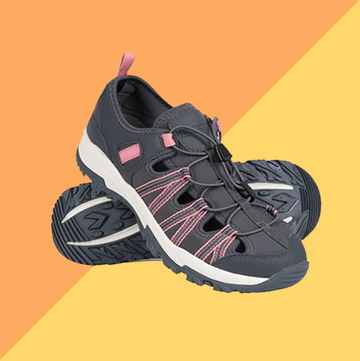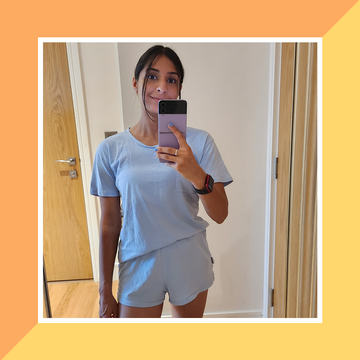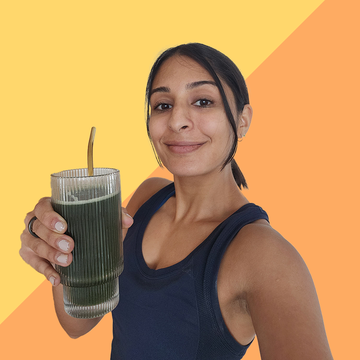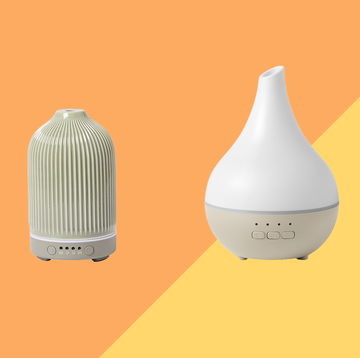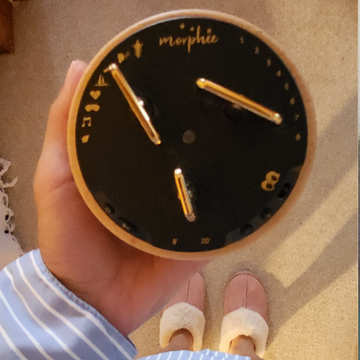We earn a commission for products purchased through some links in this article.
The best sleep supplements to help you nod off, trialled by a panel of 150 poor sleepers
Peaceful sleep, incoming...

For many of us, getting a solid night’s sleep can feel impossible at times. With never-ending to-do lists, work and family stresses, sky-high screen time and poor sleep hygiene, it’s no wonder we aren’t getting the rest we need and deserve.
With one in five us saying we don't get enough sleep, there are now countless solutions on the market, with the global sleep industry set to reach a mega £89 billion by 2030. Along with pillow sprays, eye masks and earplugs, the best sleep supplements are becoming increasingly popular, with a whole host of options lining the shelves.
We’re not taking about sleeping tablets or sedatives, which are prescribed by a GP, but nutritional supplements made with natural ingredients to aid relaxation, ease stress and help regulate the body’s circadian rhythm (your internal body clock).
With so much choice out there and some brands making bold claims, it's hard to know where to start. So, our Good Housekeeping Institute experts recruited a panel of 150 poor sleepers to try a range of market-leading supplements to the test. We also asked nutritionists to analyse the ingredients, to see if they would really live up to their claims
More Tried and Tested sleep solutions: Pillow mists | Best sleep gadgets | Best earplugs for sleeping | Best mattress toppers
Who should take a sleep supplement?
“If you’ve tried optimising your sleep environment, maintaining a consistent schedule and reducing stress, but you but still struggle to fall or stay asleep, it may be worth considering a product to help support your sleep cycle,” says Heeral Patel, health and science editor at Holland and Barrett.
“There are a number of different options available that may gently encourage relaxation, reduce the time it takes to fall asleep and improve the quality of your sleep without leaving your feeling groggy,” she adds.
Patel warns that natural sleep remedies aren’t for everyone, including children and anyone who is pregnant or breastfeeding. Consider your individual circumstances – if you have any underlying health conditions or are on medication, she advises speaking to doctor before taking any sleep supplements.
“If you’re taking antidepressants, blood thinners or sedatives, supplements and herbal remedies could interact with them.” she adds.
What to look for in a sleep supplement
With so many brands and products to sift through, how do you know which sleep supplement to go for? According to Patel, you should prioritise evidence-based ingredients that are known to aid relaxation. Here are some to look out for.
Valerian root: This is a herbal remedy that comes from the valerian plant. There’s some research to suggest it can aid sleep, especially if you have occasional insomnia, are experiencing a temporary disruption to your sleep routine or you’re post-menopausal.
Chamomile: Chamomile is a flower extract that's been used as a natural sleep remedy for thousands of years. Some studies suggest it has a calming effect and can help ease anxiety and improve sleep quality.
Passionflower: Another traditional herbal supplement, passionflower is thought to promote relaxation, ease anxiety and encourage sleep. It’s often used in combination with other sleep-inducing herbs like valerian, lemon balm and hops.
Note, passionflower should be avoided if you’re taking medications like benzodiazepines or barbiturates, as it can increase the effects of sedatives.
Magnesium: Magnesium is all the rage right now, and there's plenty of evidence to suggest the mineral can improve sleep duration and quality. It works by activating the parasympathetic nervous system, helping you feel calm and relaxed. It also plays a role in nerve function and muscle relaxation.
5-HTP: Another popular ingredient, 5-HTP is a compound that raises the level of serotonin (the feel-good hormone) in the brain. This excess serotonin is converted into melatonin, the hormone that regulates our sleep. 5-HTP is thought to help ease anxiety and support slumber.
L-theanine: An amino acid found in tea, there is some research to suggest L-theanine encourages relaxation, reduces stress and aids sleep. It’s often used in combination with magnesium.
How we test sleep supplements
The Good Housekeeping Institute experts recruited 150 panel members to trial a range of sleep supplements over the period of a few weeks. We asked them to consider ease of use, noting if the product was easy to dispense and consume, whether in tablet, gummy, powder or spray form.
Crucially, they also fed back on performance, highlighting any improvements in sleep quantity and quality after taking the supplement as instructed. They measured these improvements using a sleep tracker, whether it was a fitness watch, smart ring or their phone.
We also asked nutritionists Megan Foulsham and Georgia Chilton to assess each product, providing feedback on ingredients and checking they aligned with the brand's claims.
Back in the lab, we collated all the feedback and, based on a range of criteria, gave each product an overall score out of 100. These are the supplements our panel and experts rated.
The experts: Megan Foulsham, senior nutritionist at Calo is a registered nutritionist. She holds a bachelor's degree in biochemistry and a master’s in eating disorders and clinical nutrition. Georgia Chilton, senior nutrition manager at Fresh Fitness Food, has a bachelor’s degree in nutrition, a master’s degree in sports and exercise nutrition and has over 10 years of industry experience.
Priyankaa is our sleep and wellness expert, specialising in expert-tested reviews and roundups on the latest health and fitness products. From walking boots to running machines, Priyankaa has written about hundreds of products and is passionate about providing in-depth, unbiased reviews. Plus, as an avid runner and gymgoer, she knows exactly what to look for when finding the right gymwear, fitness tracker or earphones.
Priyankaa has an MA in Magazine Journalism from Cardiff University and over five years’ experience in health and fitness journalism. Priyankaa has written for Stylist’s Strong Women Training Club, where she regularly wrote about diversity in the fitness industry, nutrition tips, training advice and her experience completing various fitness challenges. She has also written for a variety of publications including Business Insider, Glamour, Bustle, Metro, HuffPost UK, gal-dem and more. Outside of work, Priyankaa can usually be found trying out a new gym class, seeking out London's best eats or watching a Spanish TV show in a bid to keep up her language skills.
Kim Hawley is our health and fitness product tester. Her career in fitness has spanned over 30 years. Prior to joining the Good Housekeeping Institute, she worked as a personal trainer, writer and fitness instructor for some of London’s most prestigious health clubs, including The Harbour Club, David Lloyd and The Chelsea Club. Passionate about women’s health and fitness, especially in pre/post menopause, she is also a Level 4 PT and holds a professional nutritional qualification. Kim is responsible for rigorously testing everything from cross trainers to smart watches.

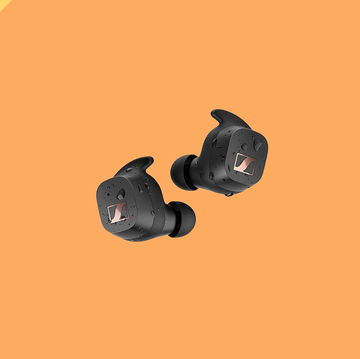
13 best headphones for running and workouts
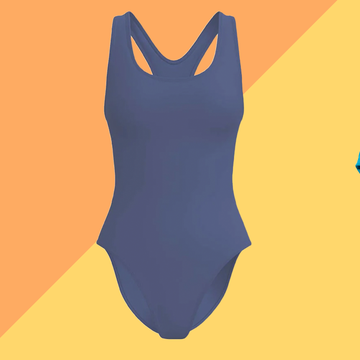
The best period swimwear, tried and tested
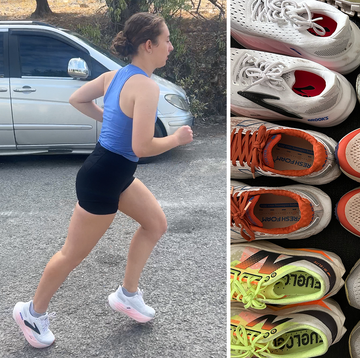
The best running shoes to shop now

6 best family tents, tried and tested














